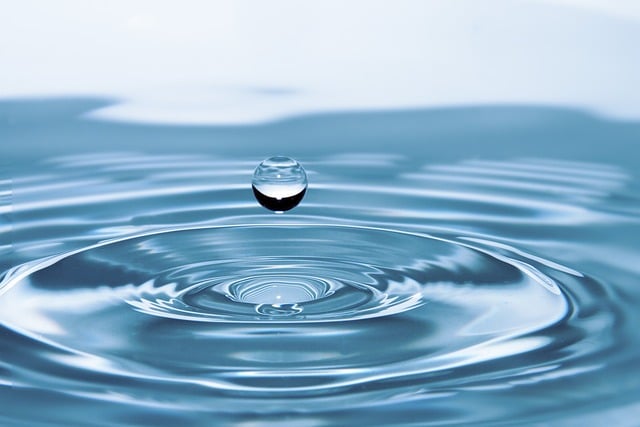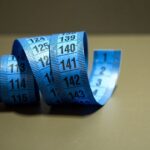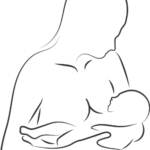Image credit to India Times
The Best Water To Use for Baby Formula Wondering what type of water you should use with your baby’s formula? Well, there are some options. You can use tap water if mixing infant formula at home and your tap water is safe for your baby. Otherwise, you may wish to use boiled or bottled water for formula. When purchasing baby formula, you can opt for water specifically designed to be safe for its preparation.
Here is some more information on how the water you are using to mix up baby formula could affect your baby’s health and how you can safely mix water with formula.
What Water to Use for Formula
The best resource to find out what water to use with your baby’s formula would be through talking to your pediatrician. They will tell you what they recommend is the safest option. You may find resources or information about what is best for you, given where you live.
You should call your local health department to find out if unboiled tap water is acceptable in your baby’s bottle, according to the American Academy of Pediatrics.
Why You Should Never Water Down Formula
The AAP also points out that parents should never dilute infant formula to give their baby extra water or make formula last longer and save money. Giving babies too much water can be dangerous, possibly even causing water intoxication. The watered-down formula also delivers fewer nutrients in each feeding, which can slow growth and development and result in electrolyte imbalances that could cause seizures.
As a general rule, the World Health Organization advises boiling all the water and then using the resulting hot water when reconstituting the formula to kill bacteria that might be present in the formula. However, any formula you prepare using boiled water must have a chance to cool completely before feeding it to your baby.
How To Mix Water with Formula
Mix your baby’s formula with water as directed on the formula labels. You also can check with other reliable sources like local WIC agencies and the Centers for Disease Control and Prevention.3 Here are a few tips from the AAP for mixing your baby’s formula with water.
First, add water to the bottle then add formula powder. Always put the water in the bottle first, then add the powder.
Boil your water if necessary. Until the age of 2 months, parents of prematurely born and immune-compromised infants should mix formula with cooled, boiled water for feeding, in order to destroy any contaminants. Boil water for five minutes and then cool it before placing it into a clean bottle.
Check the temperature of the formula. When you’ve mixed up some formula, make sure that it is not piping hot when you offer your baby a bottle by shaking a few drops onto your wrist. At feeding time, the body temperature must be brought down to the required level. If it is too hot, you can run the prepared bottle under cool water or place it in an ice bath.
Discard leftover formula. Discard what’s left in the bottle within 1 hour after feeding your baby prepared formula. If you mix the formula and don’t feed your baby right away, you can refrigerate the formula for up to 24 hours.
Never dilute the premade formula with water. Feeding your baby thinned-down formula is dangerous.
Types of Water To Use for Infant Formula
Below is a summary of the different kinds of water you can use with the formula, along with considerations for each.
Tap water
Call your local health department or talk to your pediatrician to confirm that tap water is safe at your home for mixing with formula for your baby. You can also test your water or use a filter on your tap or fridge.
You can also buy a filter alone which you store tap water in, for instance, a pitcher with a filter. If the water is declared safe, you can mix powdered infant formula with it to prepare your baby’s bottle.
Also Read : Avoid Bruised Nipples From Pumping
What about fluoride and formula?
The American Dental Association is reassuring parents that it is safe to mix fluoridated water with infant formula.4 However, since most powdered infant formulas contain some level of fluoride, your baby may have a higher risk of developing fluorosis in his or her teeth.
Fluorosis is not a disease of the tooth. It’s a mild discoloration of your baby’s teeth that are developing—that is, a milky white spot or streak in the enamel. This imperfect coloration develops on your baby’s permanent teeth while they are forming inside the gums.
If you are concerned about the potential for fluorosis to appear, then you can reduce the risk of its developing by using fluoride-free water with your baby’s formula. Again, though, it is safe to use fluoridated water, and according to the ADA, if your child does develop fluorosis, the spots usually are not noticeable and do not make any damage on the teeth.
Well water
If your well supplies the water for your home instead of a public water system, the American Academy of Pediatrics recommends that you test your well annually for nitrates and harmful bacteria.
Nitrates are in plants and, also, in the form of fertilizers. They also get into groundwater. When ingested constantly, like by infants via milk, formula, etc., nitrates are able to form methemoglobinemia, which is a serious condition. The disorder can result from the intake of nitrates by an infant from formula or milk, which interferes with the blood’s circulation of oxygen.
Boiling water will not decrease the nitrate concentration and may even increase it since some of the water will evaporate. Mechanical filters also will not remove nitrates from your well water.
Bottled Water
The other option, if you don’t like or can’t use tap water because you can’t stand it, either at home or on the street, is to buy bottled water.
You can, to your satisfaction, buy bottled water labeled as low-fluoride, purified, deionized, demineralized, distilled, or produced by reverse osmosis.
You may come across some “nursery water” products that are labeled for babies, but these are no different. Any bottled water you buy in the United States is required to meet Food and Drug Administration standards of water quality by law.
Boiled water
Most infant formula packages recommend that caregivers speak with their healthcare provider about determining if they would recommend boiling the water before preparing a bottle. Or if you are worried about the safety of the water source, you can use bottled water or boil the water for one minute and then let it cool for as long as 30 minutes before using it to mix with the formula.
Remember, boiling water avoids bacterial contamination only, not chemical contamination. Bacteria may contaminate powdered infant formula, which is not sterile.
According to the World Health Organization guidelines for the preparation of formula, all water—including tap water and bottled purified water—should be first boiled before it is used and mixed with the formula only before the temperature has cooled below 70 degrees Celsius.
How To Select The Best Water
The healthcare provider will discuss the type of water most suitable for your baby’s formula. Water sources and quality differ across regions, and your situation could be different from that of other communities.










